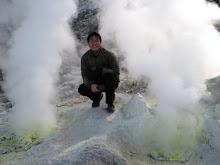
In just a blink of an eye, yet another semester has just flown by. Although the ES2007S lasted a mere 13 weeks, however, the skills learnt from this module will indeed last a lifetime! Indeed the skills learnt in this module are transferable, and will be very beneficial regardless of the field that I intend to work in after graduation. Although the workload for this module was indeed very heavy, I have no regrets taking this module.
Reflecting back, this module has given me the opportunity to teach a class on an allocated topic, write effective application letters and resumes, prepare for interviews, craft a proposal, as well as to give persuasive oral presentations. Indeed, this module has made me realize that possessing effective communication skills are necessary! The module has also made me realize that it is not just achieving good grades that will allow us to attain our dream job, but also how well we sell ourselves. It was also through ES2007S that I was exposed to various online communication platforms. The platforms include that of blogs, google docs, google wave other wikis like NUS wiki.
Although I have heard of these online communication tools before, it was only when I learnt of how to use these platforms for communication, did I realize the actual usefulness of such platforms. Using google wave in combination with google docs and skype not only made group project meetings unique, but also allowed our group to get the task done in the fastest and most effective way possible. This was especially convenient, given our tight schedules. As such, the module not only exposed and equipped me with the necessary communication skills, but also to fully utilize online communication platforms to the fullest, and this I feel will carry me a long way, especially in the workplace in the future!
What I particularly enjoyed in this module was the interactive nature in which lessons were conducted. Unlike most of the other modules offered in NUS where the class size is usually big (big to the extent where you will never get to know all your classmates), the small class size has allowed for more interaction in class. It was also one of the rare moments where I got to know everyone personally in class, which made attending lessons more fun and meaningful.
Lastly, I will also like to take this opportunity to thank Ms. Lim for being such a wonderful and dedicated tutor, and everyone in class for making this module such a wonderful experience! I hope that all of us will be able to keep in touch long after this module has ended. All the best in your future endeavours! =)

